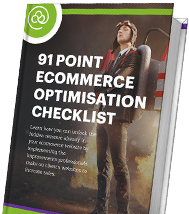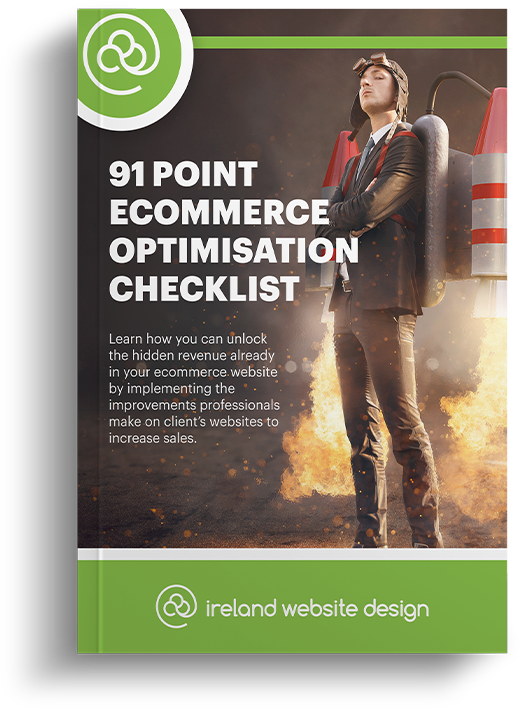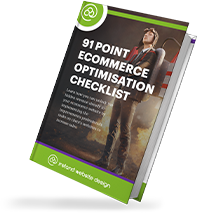SEO Hacks to Boost Your eCommerce Traffic and Sales
There’s no doubt that today’s fast-paced society offers more opportunities than ever for retailers. However, with increased competition and consumer expectations also presenting new challenges, even online businesses need to develop strategic solutions to stay ahead.
But amongst the chaos of changing market conditions and uncertain financial landscapes, there are some things your eCommerce can maintain control over.
For example, regardless of the situation you find yourself in, having a strong online presence is essential for ensuring your eCommerce business can sustain itself long-term. With an online store that has a great digital marketing strategy to support it, you can give your business the stability it needs to withstand whatever’s to come.
While there are numerous strategies online businesses can use to strengthen their positioning, one of the most effective is Search Engine Optimization (SEO). SEO is the process of improving a website’s visibility and Search Engine Results Page (SERP) ranking — essentially ensuring your website connects with the right people, at the right time.
To help you leverage SEO for your eCommerce website, we’re here with our SEO optimization hacks to help your business thrive.
Let’s dive in.
1. Effectively Define Product Categories
One of the first steps to achieving better search engine results for your eCommerce website is to ensure potential customers can easily find what they’re looking for. To do this, it’s vital to define your product categories in a way that makes sense for your brand, your customers, and of course, search engine results.
By organising products into logical categories and subcategories, you can make it easier for your target market to find what they’re looking for quickly and, as a result, secure sales more effortlessly.
Sounds easy, right?
We’d love to tell you that it is.. But in reality, defining your product categories can take longer than you think — if you’re doing it right that is! To make things easier, we suggest taking the following steps:
Research what your customers are searching for
Most eCommerce business owners will be familiar with conducting keyword research. However, you might be overlooking just how much of a difference the right keyword can make to your products’ searchability.
Whether you’re focusing on local SEO or want to target multiple geographical locations at once, we suggest always putting more time into keyword research than you think is necessary.
Figure out your customers’ priorities
As well as knowing what your customers are searching for, it’s also important to understand how they’re searching. For example, are you customers searching by price or brand? If so, knowing this type of information can make a big difference to how you frame your SEO strategy.
With this kind of information also being valuable for other areas of marketing such as content and social media marketing, it’s in your best interest to uncover what matters most to your target audience and ensure you’re one of the eCommerce businesses shaping your content accordingly.
What categories are your competitors using for site navigation?
While your eCommerce business should never base its entire SEO strategy on what competitors are doing, it is vital to remember that the rankings of others can directly impact your search results.
This is why it’s a good idea to see how your top competitors define their product categories and see if your web pages can offer improved clarity and a better use of keywords.
2. Product Page Optimization
Product page optimization is another crucial component of eCommerce SEO. Without ensuring each product page contains the right level of relevant keywords and phrases, it can be difficult to gain visibility in search engine results pages.
Particularly when it comes to product descriptions, unique, high quality content will always perform better in Google searches.
This is why you should:
- Avoid copying and pasting manufacturer descriptions and instead, write your own from scratch
- Include targeted metadata (including title tags and meta descriptions) to ensure consumers can more easily evaluate the relevancy of your product pages
- Ensure your main keywords are present in headings and subheadings (H1s and H2s) on your product page
- Avoid ‘keyword stuffing’, but ensure your product pages still achieve a certain level of keyword frequency (Note: Google have a clear spam policy in place, be sure to check this out before publishing your product pages!)
In addition to using keywords, businesses need to ensure that their product pages are user-friendly and visually appealing. Aim to balance text with high-quality images and videos (that also utilise meta tags) to help your product pages stand out.
3. Using Landing Pages for Special Events/Promotions
One of the best ways to get traffic to your eCommerce website and boost sales for specific products is to use landing pages. Particularly for special events and promotions, landing pages can help you cut through the noise and capture the exact type of attention you want.
For example, if your business is running a sale on a particular category of products, you can create a landing page that directs traffic to this sale for a limited period. This can be a great way of helping you boost traffic to a certain web page, without altering your wider strategy or impacting existing SEO rankings.
To leverage landing pages for SEO purposes:
- Use tools such as Google Search Console and Google Analytics to evaluate search queries/structured data that can help shape the content of your landing pages
- Don’t just use a landing page template — ensure your landing page is unique and matches the look and feel of your eCommerce store
- Create a content marketing strategy that allows you to leverage backlinks and internal linking to the products or pages you want to highlight
- Make your landing page shareable
From a technical SEO perspective, keeping your eCommerce website search engine friendly often means playing the long game, which is why landing pages also offer a great opportunity to ‘test the SEO waters’ with some different strategies for short-term promotions.
4. Using Social Media Integration
No matter what algorithm search engines are using, hype can never be ignored. This is why social media can be a powerful tool for driving traffic and increasing sales for eCommerce websites. The more people mention your business name online, the more credibility it will have to search engines.
To get people talking about your brand and help search engines discover your website, we recommend:
- Including social sharing buttons across all touchpoints
- Featuring user-generated content to encourage others to join in
- Implementing referral programs to incentivize your existing customers to refer their friends and family to your brand
- Consider influencer marketing or strategic partnerships to kickstart the conversation around your business
In addition to generating word-of-mouth on social media, it can also be good to use public relations strategies to get your brand mentioned in the media.
This can include publishing:
- Press releases
- Media pitches
- Blogs including expert insights
- Industry news announcements
- Policy reports e.g., sustainability and DEI strategies
5. Link Building
At this moment in time, it’s safe to say that Google and other search engines LOVE link building. By achieving backlinks from reputable websites, businesses can improve their website’s authority and visibility in search engine results pages.
To help get your eCommerce website featured on other sites, we suggest:
- Creating a blog section with shareable content and valuable insights
- Partnering with other industry leaders to help get your products and website mentioned e.g., offer free samples to partners to review your products
- Join relevant communities and make people aware of what you offer
- Market yourself more broadly e.g., become a podcast guest, write guest articles for other websites
- Find places you’ve been mentioned online and request a backlink
To help promote the reputation of your business, it can also be useful to feature links to other websites on your own website e.g., “as featured in. This involves showcasing logos and links from trustworthy and well-known websites that have featured your products or brand.
How Ireland Website Design Can Help You Master SEO
An eCommerce website is not just a virtual storefront, it’s also a valuable marketing tool that can help your online business reach a wider audience, boost traffic, and increase sales. This is why at Ireland Website Design, we can help you implement an SEO strategy that goes beyond best practice and achieves results that give you the competitive edge you need.
If you’d like to know more about our web design, branding, and SEO services, reach out to our team to find out more.




